The history of travel
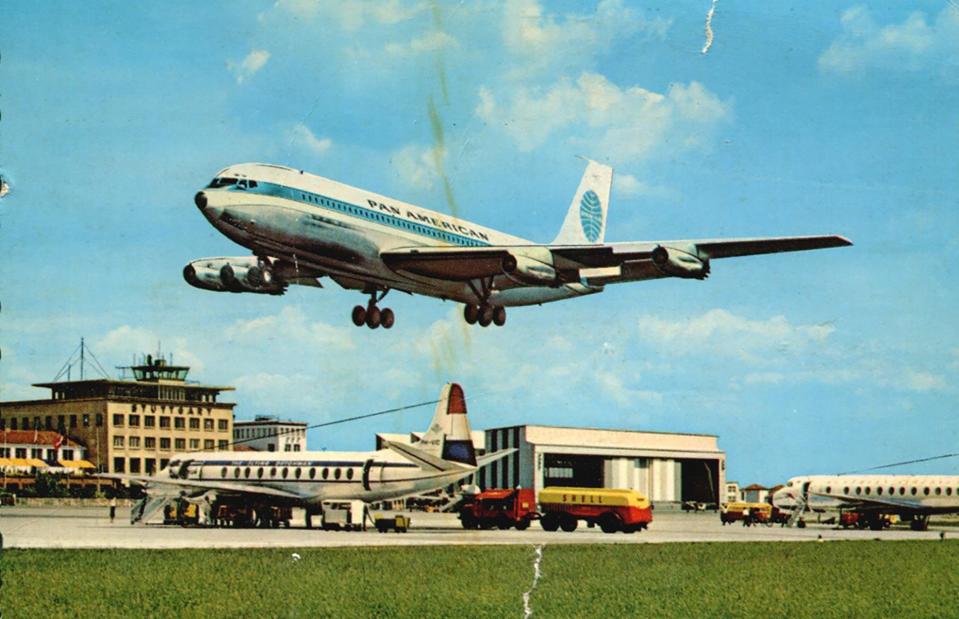
Roger W/Flickr/CC BY-SA 2.0
Humans have been finding new ways to travel since time began. Sometimes it was to search for food. At other times it was to conquer new territories or enjoy a week in the sun. These days, it’s the world’s billionaires competing to see who can be the first into space.
Read on to see the events and people that have shaped the history of travel and tourism from 3000 BC to the present day…
The first travellers
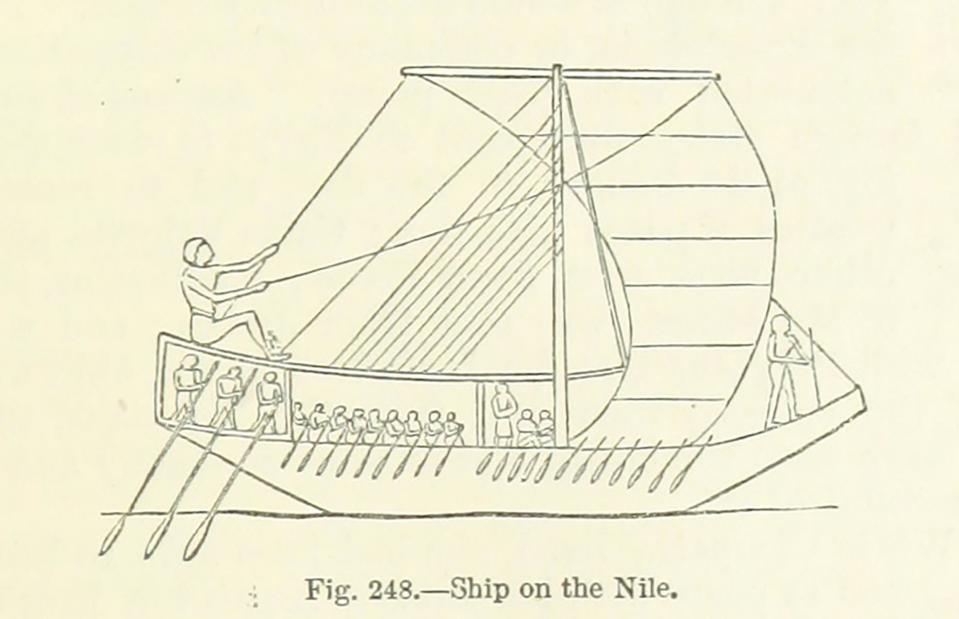

The British Library/Flickr/CC0
The first humans who made journeys were likely those looking for shelter, food and water. But some of the earliest recorded expeditions were for trade. In 3000 BC, the empire of Mesopotamia (now southern Iraq) traded with neighbouring regions. Around the same time, Minoans in modern-day Crete traded around the Mediterranean coast, Chinese diplomat Zhang Qian travelled to prepare the Silk Road trade route and Egyptians sailed up the Nile with goods.
Alexander the Great
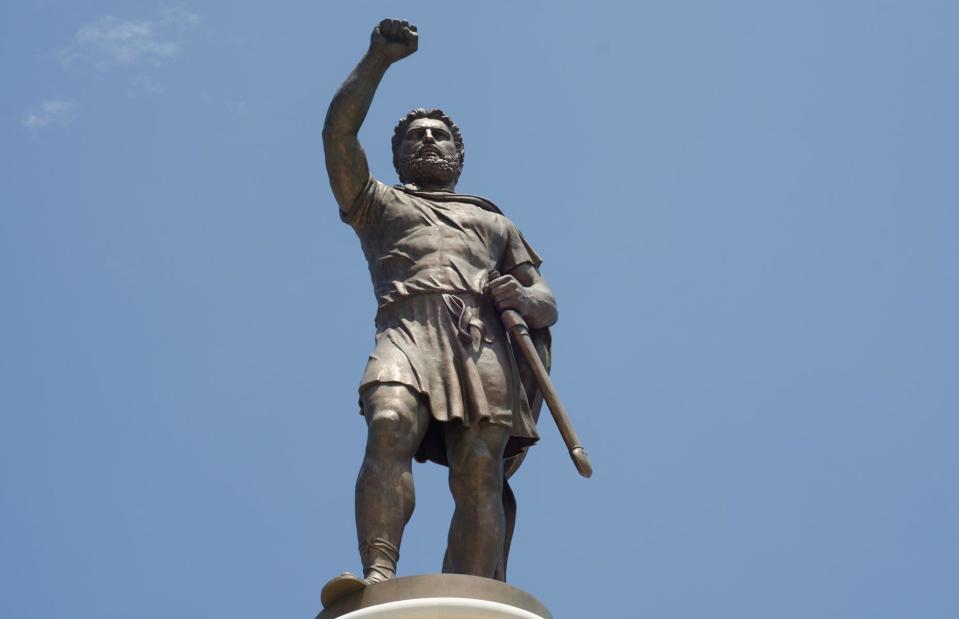

Perhaps one of the most famous conquerors, Alexander the Great travelled and invaded vast amounts of the Persian Empire, in central Asia, India and Egypt. He’s known for spreading Greek culture and cities bearing his name still exist today like Alexandria in Egypt and Iskandariya in Iraq.
Roman roads
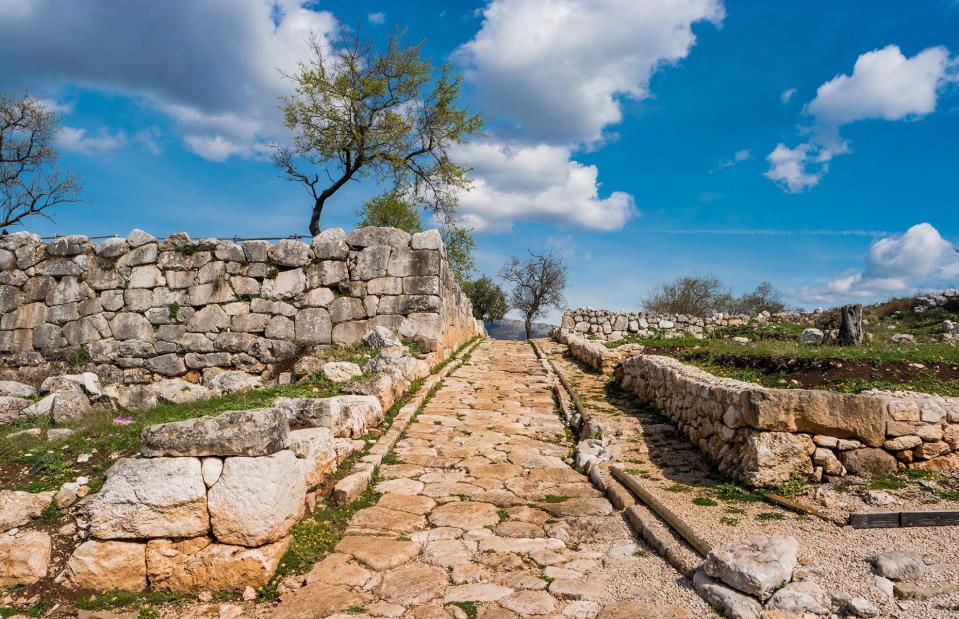

The Romans were an innovative bunch when it came to infrastructure. Road-building began in 300 BC and by the 2nd century BC, the empire’s network was complete. They linked Rome with 113 provinces and many more towns and ports, with 248,548 miles (400,000 km) of road.
Early religious pilgrimages


As people travelled more, they started making religious journeys and pilgrimages. In the 7th century, Chinese scholar Xuanzung went to India to learn more about Buddhism. Helped by the Roman road network, Christianity expanded and Islam emerged in 632 BC, rapidly spreading from the borders of India to the Atlantic Ocean.
Hypatia of Alexandria and the astrolabe
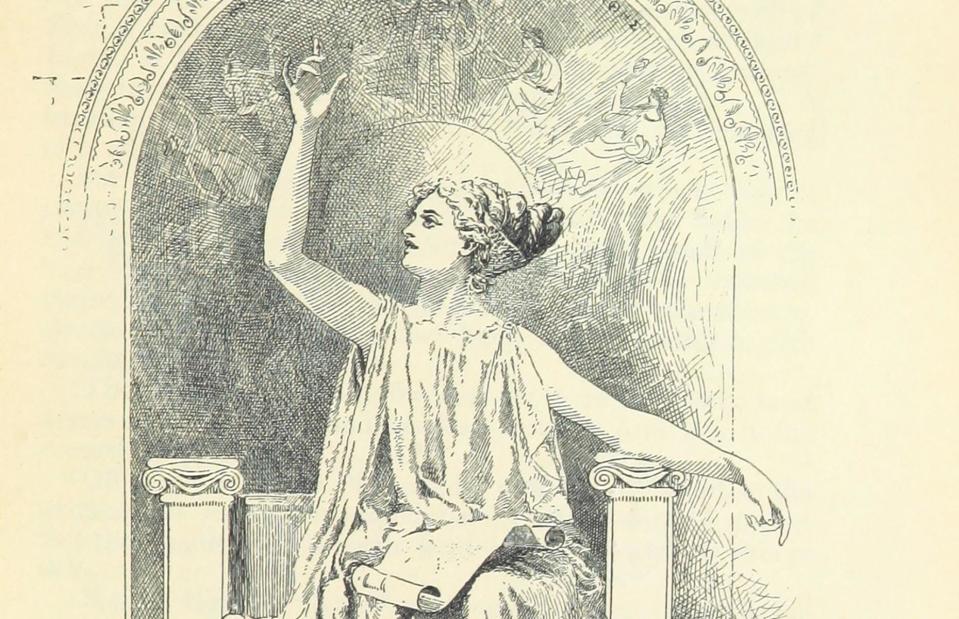

The British Library/Flickr/CC0
Hypatia was a Greek mathematician, philosopher and astronomer born in Egypt, then part of the Byzantine empire. She’s credited with inventing the astrolabe – a brass instrument used to establish latitude and time. An important aid for early explorers, the astrolabe uses corresponding positions of the sun and stars to determine time and geography.
Travel and war: the Vikings
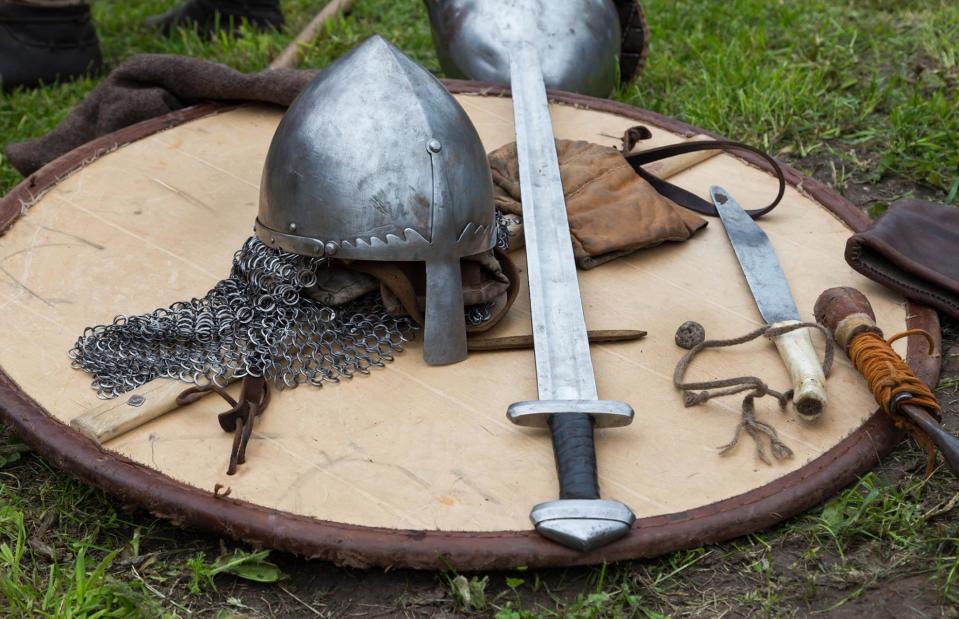

Maria Koriakovtseva/Shutterstock
With more movement around the world also came war. Of course the Vikings weren’t the first to plunder the lands they journeyed to, but the Scandinavian warriors became among the most infamous pillagers from 830 BC.
The Crusades
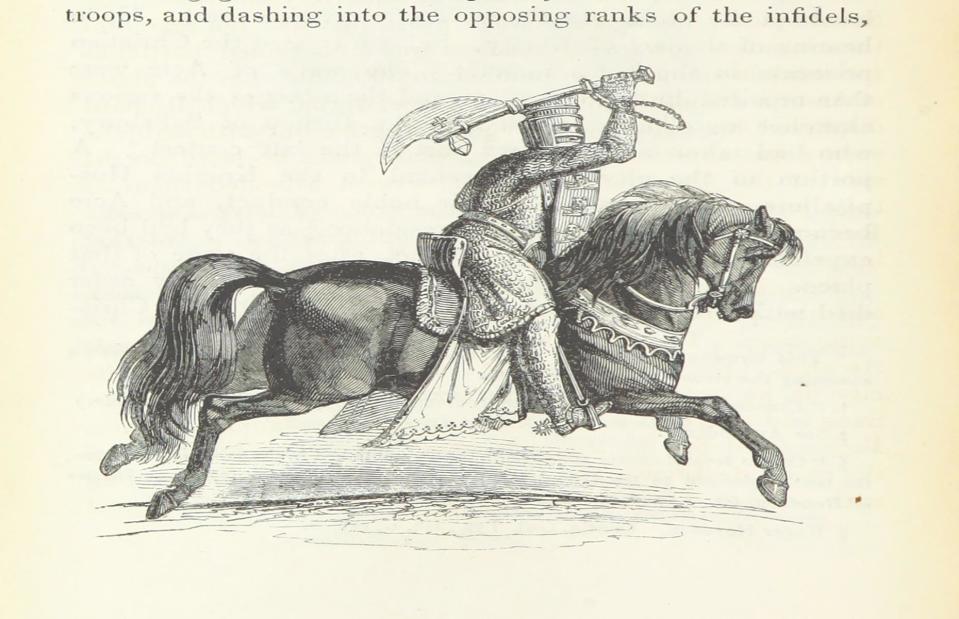

The British Library/Flickr/CC0
The Crusades are another example of journeys that ended in warfare. Between the 11th and 13th centuries, ten of thousands of Christian soldiers travelled to Palestine to fight Muslims – the repercussions of which are still felt today.
The Silk Road
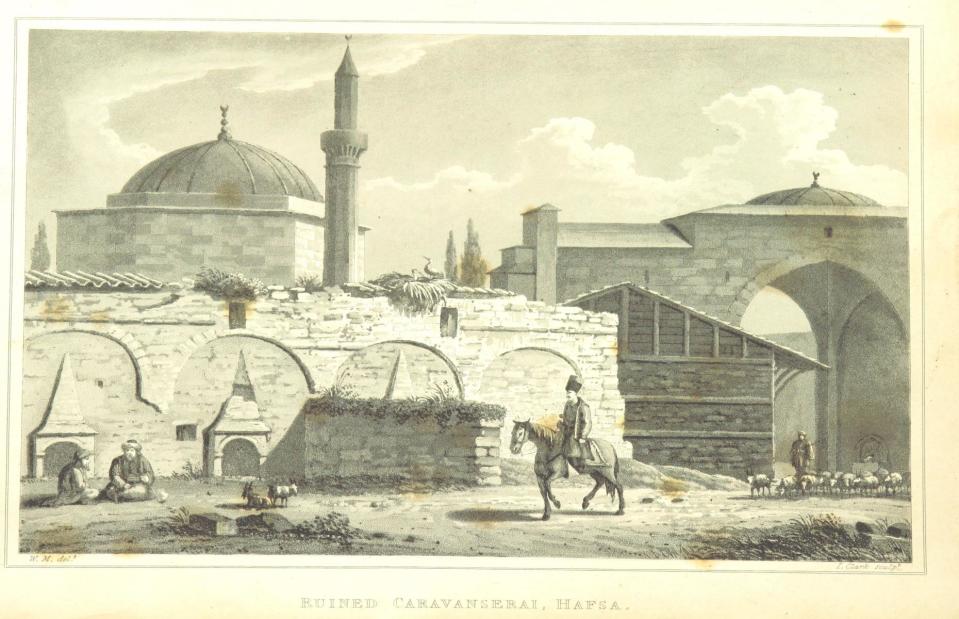

The British Library/Flickr/CC0
The Silk Road, a network of trade routes from Cairo and Constantinople to Chang’an in modern-day China, connected merchants, porters and translators. By the 14th century, guidebooks were written about the journey and caravanserais – roadside inns where travellers could rest – popped up along the route.
Western travels to Asia, Africa and the Americas
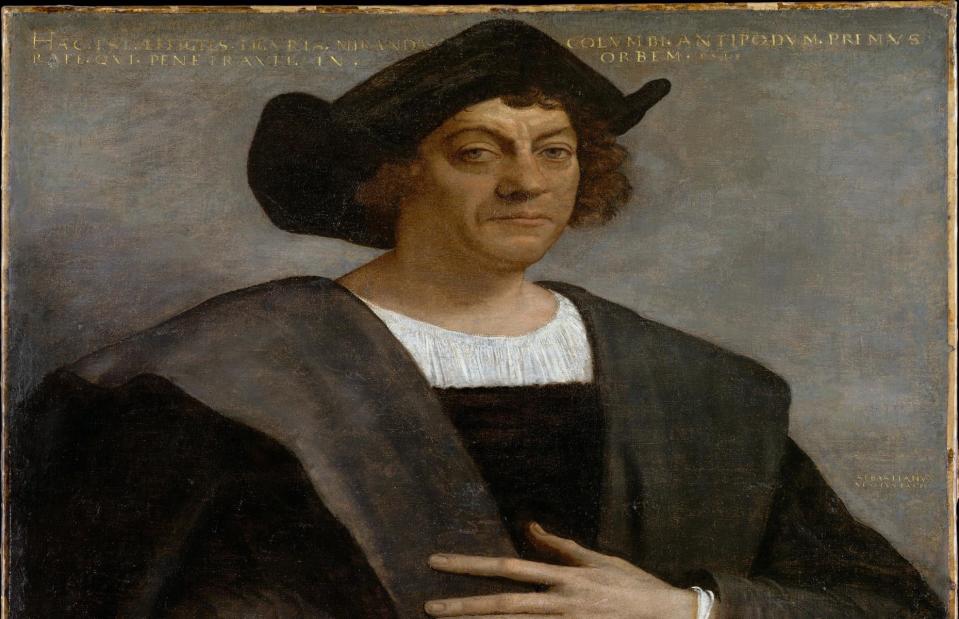

The Metropolitan Museum of Art/CC0
The so-called Age of Discovery, between AD 1400 and 1600, saw a vast number of Europeans embark on voyages to areas of the world previously unknown to the Western world. Portuguese Vasco da Gama was the first European to sail to India in 1497, Christopher Columbus (pictured) made four transatlantic voyages to America from 1492-1502 and Ferdinand Magellan was the first person to circumnavigate the globe, to name a few.
Consequences of conquest: trade and slavery
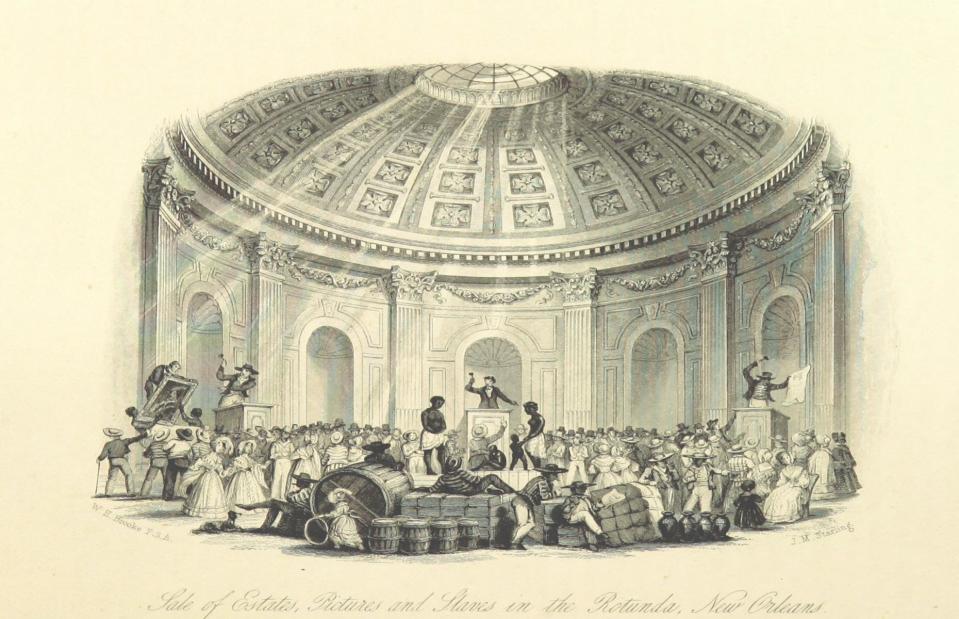

The British Library/Flickr/CC0
While exploration during the Age of Discovery opened up new trade possibilities, it also brought exploitation and tragic battles with natives. Among the many horrific consequences of conquest, the slave trade was one. In 1526, the first Portuguese slave ship sailed from Africa to the Americas. Overall, up to 12 million Africans were taken across the Atlantic.
Transport powered by hot air and steam
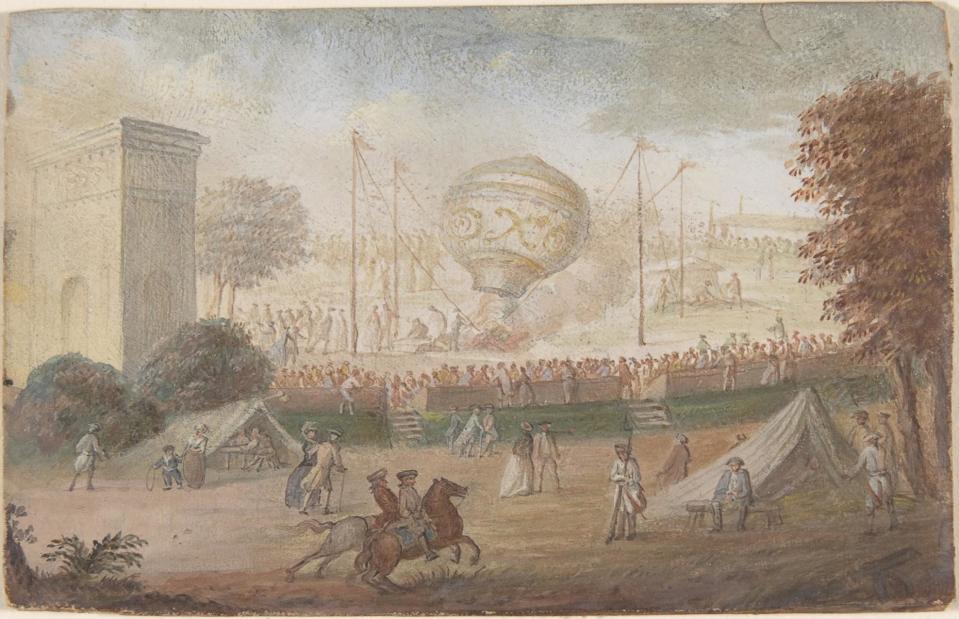

The British Library/Flickr/CC0
By 1783, we had lift off. The hot air and hydrogen balloon was invented in France then in 1807, the first commercially viable steamboat set off on its maiden voyage from New York. The steam revolution didn’t slow down, with the first steam engine railway connecting Liverpool and Manchester in 1830. Faster travel was full steam ahead.
Charles Darwin
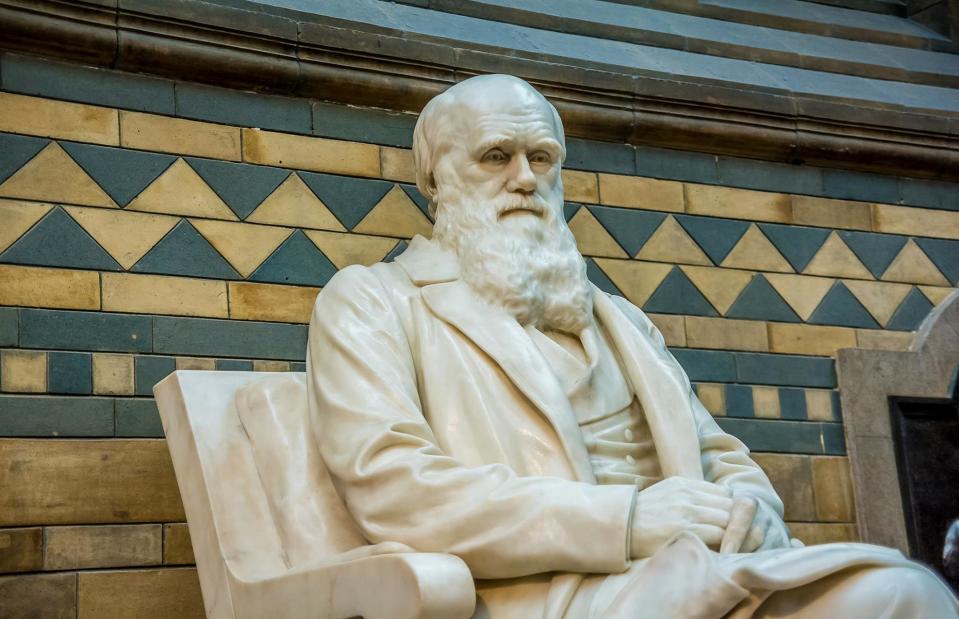

English naturalist Charles Darwin’s voyages around the world have become some of the most famous. His study of animals and birds would later form his theory of evolution and literary masterpiece, On the Origin of Species.
Thomas Cook and the beginning of mass tourism
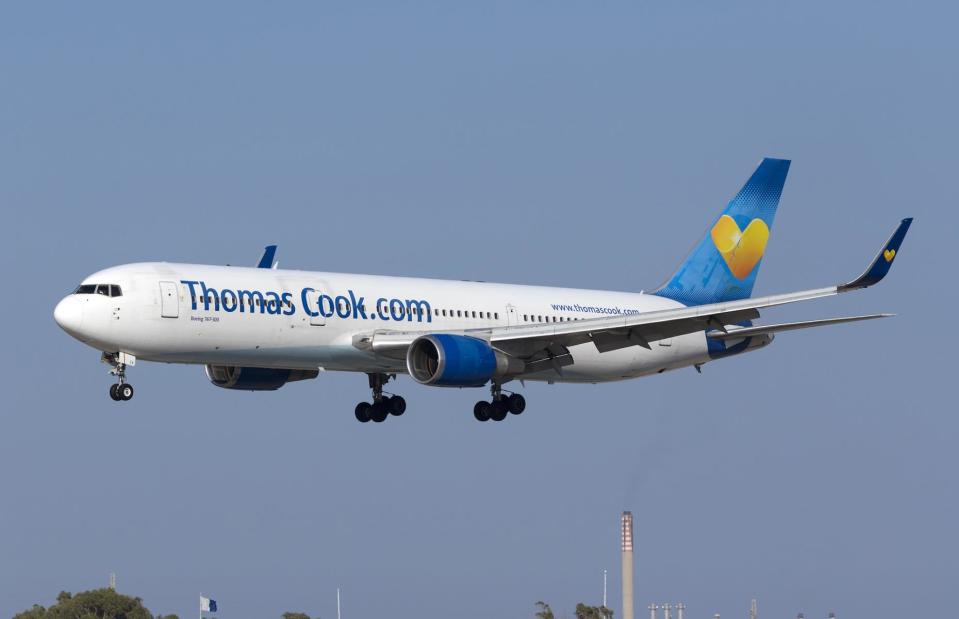

Englishman Thomas Cook conducted his first organised excursion from Leicester to Loughborough in 1841. From then on, he arranged trips to the continent in 1855, introduced a hotel discount system for those travelling on his tours and led a grand round-the-world tour in 1872. He pioneered the package holiday and his legacy continues today with the eponymous high street travel agent.
Around the world in 72 days
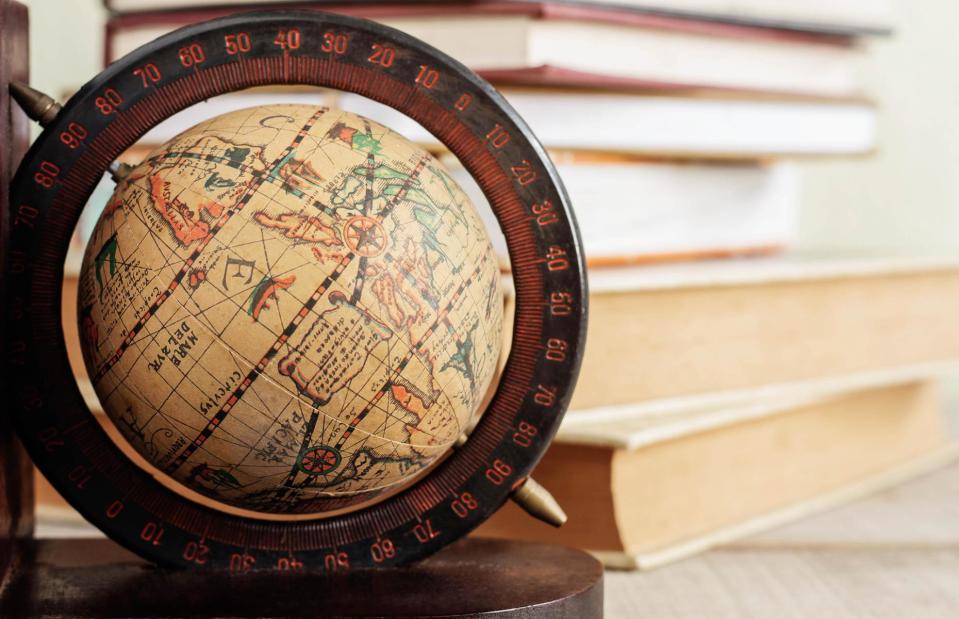

Thanks to improved transport by the end of the 19th century, it was possible to travel all the way around the world. In 1873, author Jules Verne wrote fantasy adventure novel Around the World in Eighty Days, charting a seemingly impossible globe-trotting journey. Just 16 years later in 1889, American journalist Elizabeth Cochran set the world record for travelling around the world in 72 days.
The first flights
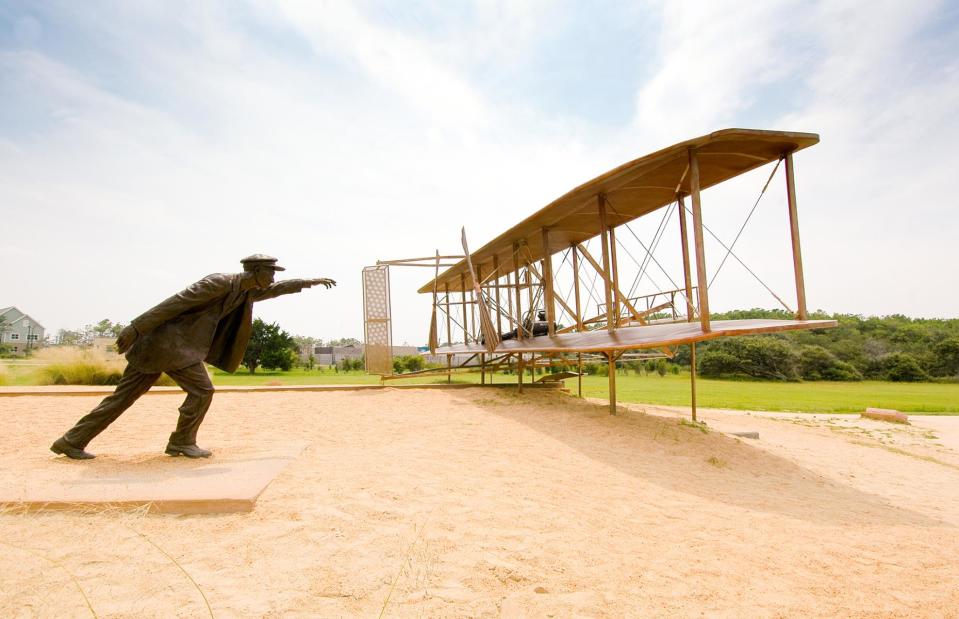

In 1903, American bicycle manufacturers Wilbur and Orville Wright made aviation history. They carried out the world’s first ever sustained flight in North Carolina before presenting their aircraft to the press five years later in 1908. They paved the way for air travel as we know it today.
Reaching the North and South poles
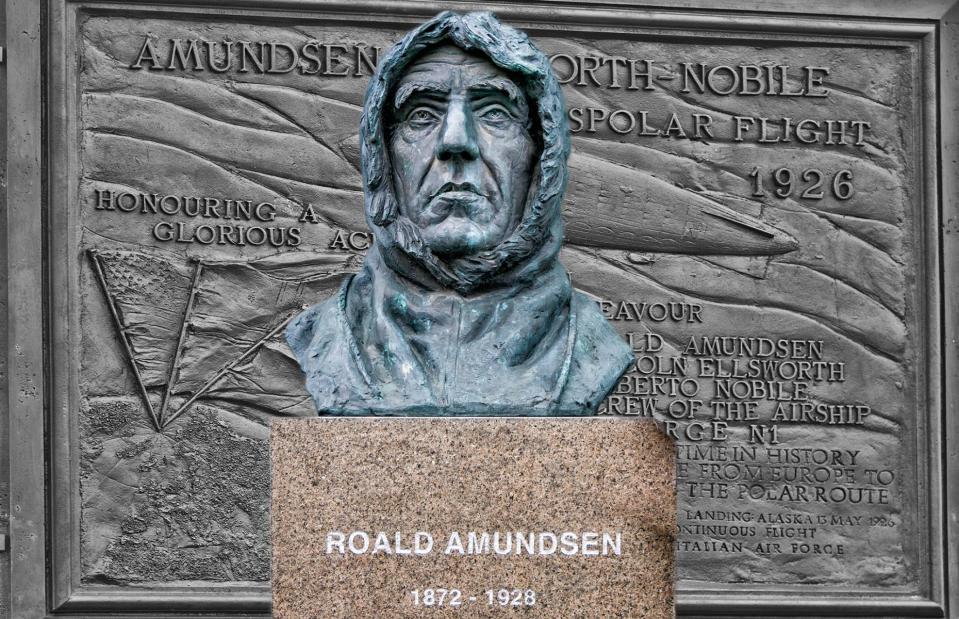

Andrea Izzotti/Shutterstock
By the end of the 19th century, most land masses on Earth had been explored with the exception of the polar regions. While many attempts had been made to reach the Arctic and Antarctic, it wasn’t until 1911 that Norwegian Roald Amundsen became the first person to reach the South Pole. Americans Frederick Cook and Robert Peary made disputed claims to reach the North Pole in 1908 but the first scientifically-proven expedition was also by Amundsen in 1926.
Holidays to the Med
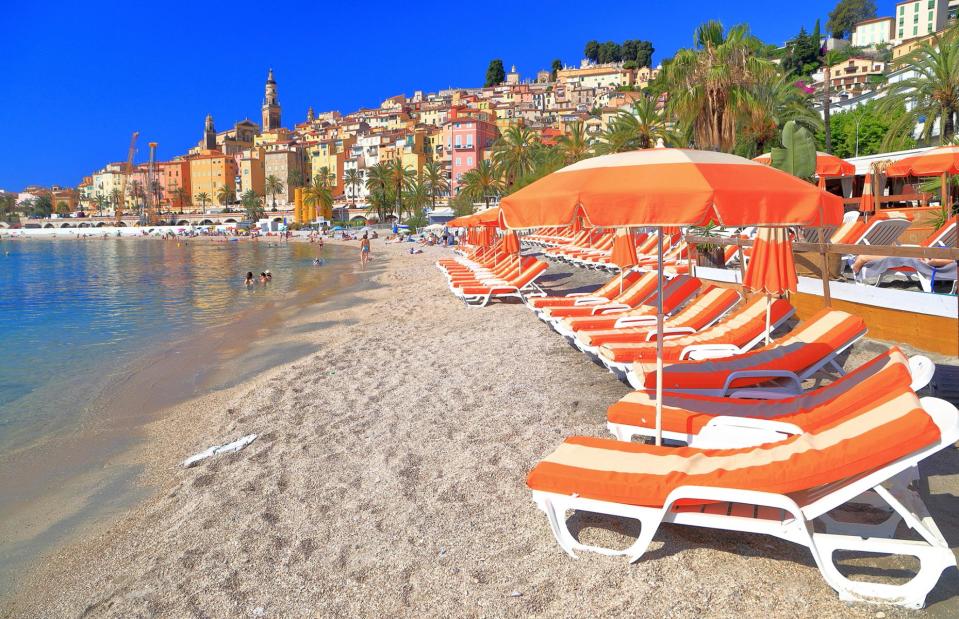

For the British, the lure of sunnier climes and improved train links with the UK meant that the French Riviera and Italian seaside resorts became increasingly popular holiday destinations for the wealthy by the 1920s. When travel became cheaper towards the end of the 20th century, escaping on a summer holiday opened up possibilities to the wider population.
The advent of commercial air travel
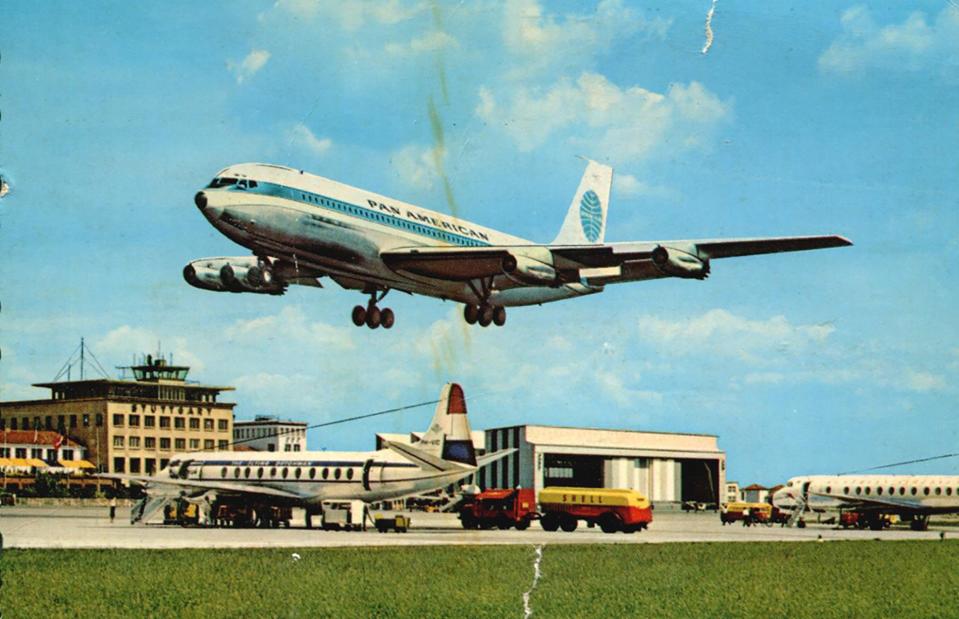

Roger W/Flickr/CC BY-SA 2.0
Flying was previously the preserve of the rich but the launch of the Boeing 707 in 1958 opened up air travel to the masses. Compared with the first attempt at the commercial jetliner in 1952, the 707 was faster and carried five times as many people. The size and efficiency of the Boeing 747, launched in 1970, decreased fares even further.
Concorde: travelling at twice the speed of sound
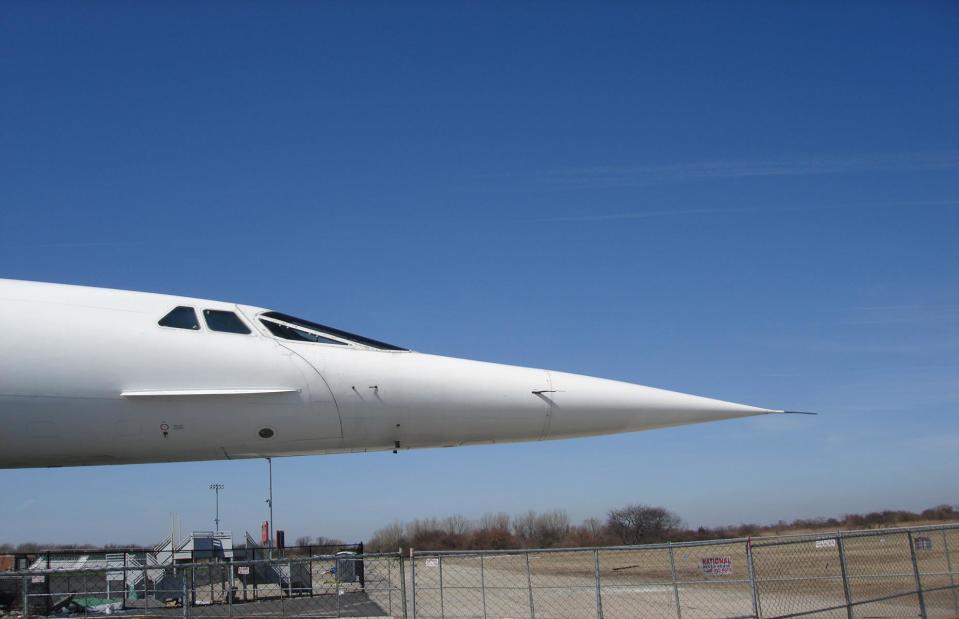

Launched in 1976, commercial airliner Concorde could transport passengers from London to New York in three hours, compared to the Boeing 737’s seven-hour journey. It stood for incredible aviation innovation, but after a tragic Air France crash in 2000 which killed 113 people, it was permanently retired.
First man on the moon
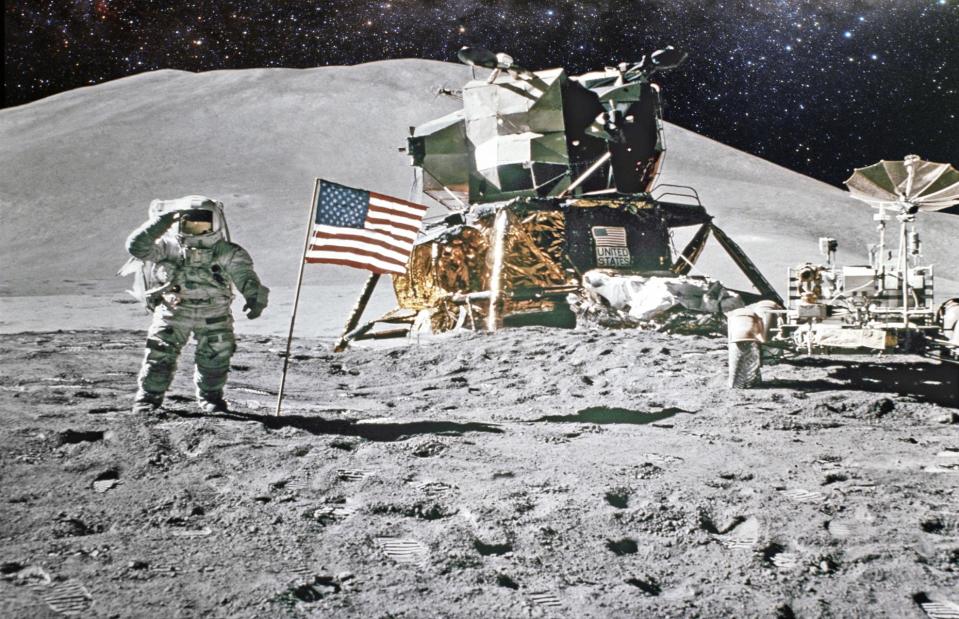

On 20 July 1969, astronaut Neil Armstrong uttered the famous words, “That’s one small step for a man, one giant leap for mankind”. After a space race with the Soviets, American astronauts Armstrong, Michael Collins and Edwin Aldrin were the first people to land on the moon.
The future of travel
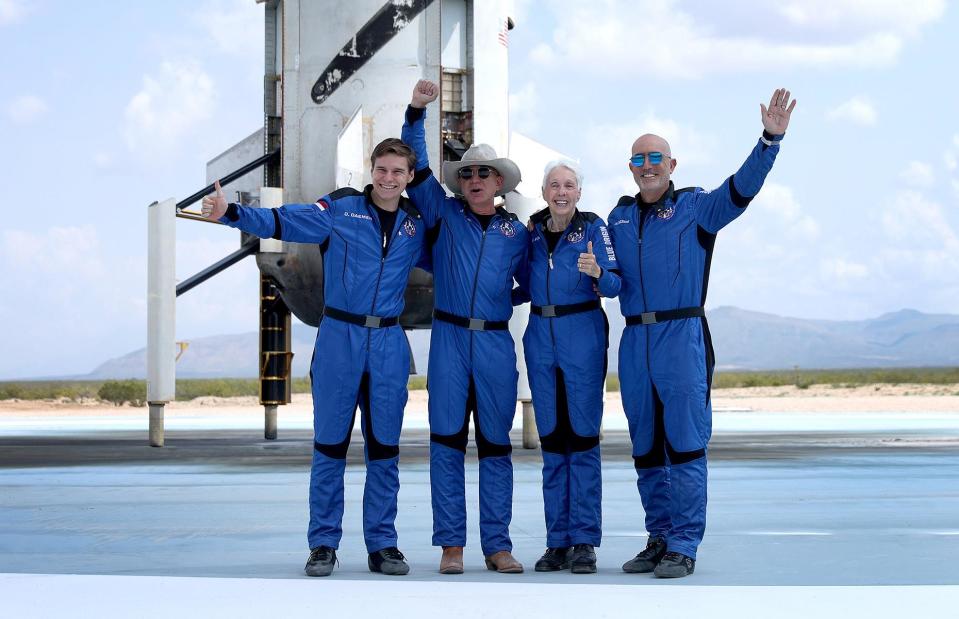

As travel on Earth has become more accessible and affordable, space tourism looks set to be the future. Companies like Virgin Galactic and Blue Origin (pictured), founded by Sir Richard Branson and Amazon billionaire Jeff Bezos respectively, have begun offering suborbital flights, giving passengers a few minutes in space and the chance to experience microgravity. Elon Musk’s enterprise, SpaceX, is the only space tourism company so far to send private civilians into orbit and onto the International Space Station (ISS). With each passenger reportedly paying US$55m (£43m) for the privilege, a week on the IIS remains out of reach for most of us… but for how long?
Now discover the unbelievable ways travel is set to change in the future

